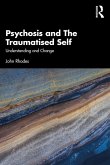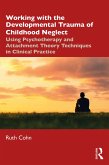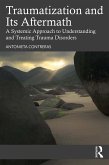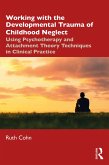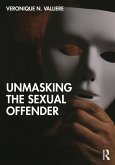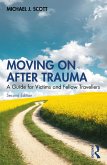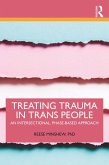Dieser Download kann aus rechtlichen Gründen nur mit Rechnungsadresse in A, B, BG, CY, CZ, D, DK, EW, E, FIN, F, GR, HR, H, IRL, I, LT, L, LR, M, NL, PL, P, R, S, SLO, SK ausgeliefert werden.
Matthew Ratcliffe, Professor of Philosophy, University of York
'John Rhodes' book is a great example of how qualitative research can contribute to the development of psychotherapeutic approaches. Drawing on a phenomenological analysis of interviews with people with psychosis diagnoses who have experienced different types of trauma, Rhodes discusses the implications of this analysis for therapeutic work. He reviews a range of different therapeutic approaches and then describes his use of an integrated approach that draws on Schema Therapy. The book will be of value both to practitioners and qualitative researchers interested in clinical practice.'
David Harper, Professor, Programme Director (Academic) of the Professional Doctorate in Clinical Psychology at the University of East London.
'This book makes a major contribution to understanding how abuse and trauma, including political violence, inform our understanding of psychoses and those who experience them. Its rich analysis of the experiences of the personal experiences of his patients helps the reader better understand the role of trauma in the making of the self, including the psychotic self, and how we then attempt to live in the world. The book draws on concepts and theories from both science and philosophy to enrich its account. It ends with a cornucopia of rich ideas about therapy for those with psychotic experiences based on the long clinical experience of the author.'
Oliver Mason, Reader in Clinical Psychology, University of Surrey
'Real world clinical work with persons diagnosed with psychosis often reveals deep and complex histories of trauma. This novel and original volume by John Rhodes offers a rich exploration of differing forms of trauma and their deep effects on the experience of self-coherence and one's place in the world. Practical and novel approaches to treatment are described that go beyond addressing symptoms and skills and offer patients opportunities for some of the most meaningful and subjective forms of recovery.'
Paul H Lysaker Ph.D. Clinical Psychologist Richard L Roudebush VA Medical Center; Professor of Clinical Psychology, Department of Psychiatry, Indiana University School of Medicine



